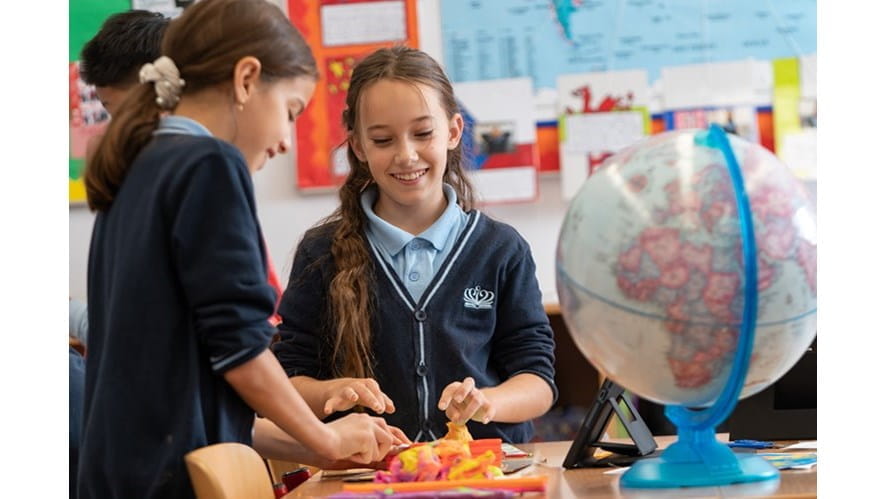We use cookies to improve your online experiences. To learn more and choose your cookies options, please refer to our cookie policy.

It is important to learn to get comfortable with being uncomfortable.
Why do some people seem to succeed easily while others struggle? How much of your ability is innate and how much is learnt? Is there a limit to our intelligence? What about personality and behaviours? How does your mindset affect your approach to learning? These are some of the interesting questions that students at the British International School Bratislava have been discussing during their reflection week.
In her book, Mindset, psychologist Carol Dweck writes that success comes from having the right mindset rather than intelligence, talent or education. She identifies two mindsets, fixed and growth.
Children and adults with a fixed mindset believe they are born with a certain amount of intelligence, skills and abilities and this cannot change. If you have a fixed mindset, you are more likely be worried that you are not smart enough to achieve your goals and place limits on yourself by only participating in activities you know you are good at. Quite often, people with a fixed mindset place a lot of importance on outcomes, valuing their achievements by comparing themselves with others. They do not like to challenge themselves because of the fear of failure, hence limiting their potential attainment. So, they take the easy road. Similarly, those who have always found learning hard do not persevere because they feel there is no value in trying if they are never going to be as good as someone else.
On the other hand, children and adults with a growth mindset believe that ability can change as a result of effort, perseverance, and hard work. Quite often, people with a growth mindset achieve more than those with a fixed mindset because they worry less about making mistakes or looking smart or being better than someone else. They put more effort and energy into learning new things. They place the emphasis of their learning on the process rather than the outcome. With this mindset, rather than perceive other individuals as competitors, they see them as a great opportunity to learn from and to collaborate with. Students with a growth mindset see mistakes or perceived failure as ways to learn and grow: embracing challenge; applying different strategies and persisting in the face of setbacks.
During a week of reflection, students atthe British International School Bratislava discussed using mistakes as a learning tool. Learning something new can be confusing and uncomfortable. At the British International School Bratislava learners are working on “getting comfortable with feeling uncomfortable” by jumping into the ‘Learning Pit’. They know that “getting it wrong” is a temporary, but essential stage in their learning journey. By employing a variety of skills, tools and attributes they can make their way out of the pit to higher ground. The more students practise this, the more likely they will view challenge and effort positively, which will ultimately lead them to be more successful.
As adults we too must be mindful of the impact that our words have on children and others around us. Dweck reminds us that ‘offering praise when someone does well, reinforces a fixed mindset, whilst praising their effort encourages growth. When you focus on an individual's results, they learn that trying doesn't matter. But praising their efforts rewards their process of learning, so they become more motivated to continue striving toward their goals. At the British International School of Bratislava, teachers take care to ensure they praise a child’s effort. They also help to rephrase children’s judgements on anything they are finding difficult from ‘can’t’ to ‘can’t do…YET’. A small but powerful word.
So, I invite you to consider your own mindset. Is it fixed or growth? Or a bit of both?
You can adopt a growth mindset at any time of life. We should all strive to be lifelong learners. You may not become another General Štefánik or Marie Curie but a growth mindset can help you, through effort and reflection, to realise or even exceed, your own potential.
Author: Kate Fitzpatrick is a Head of Primary School at The British International School Bratislava